The 2024 5th International Conference on Intelligent Design (ICID 2024) wrapped up at Xi’an Innovative Design Center
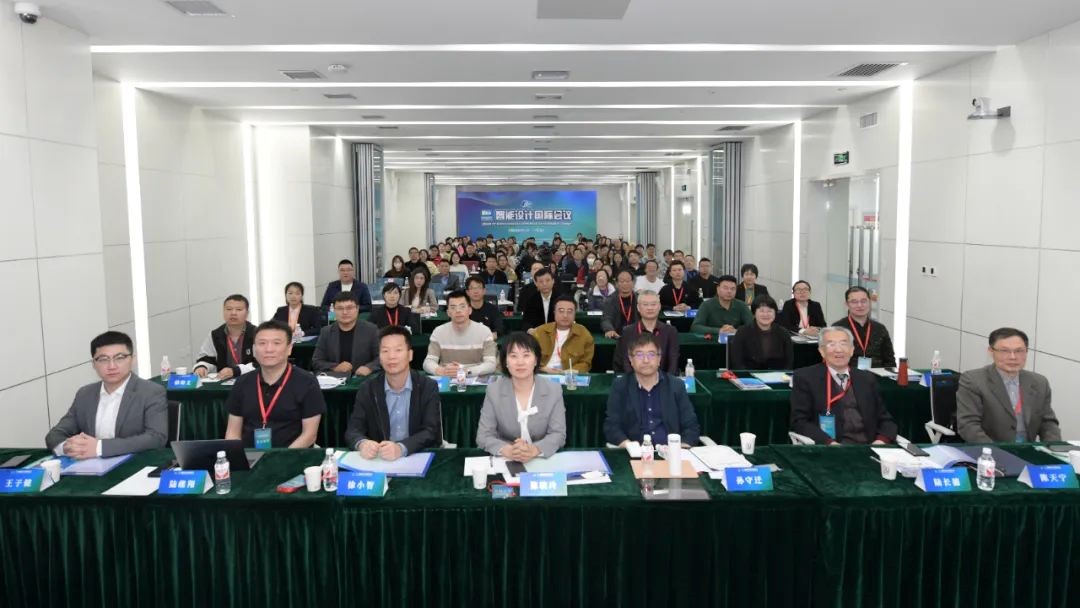
On October 26th, the 2024 5th International Conference on Intelligent Design (ICID 2024) successfully convened at the Xi’an Innovative Design Center. This conference was jointly hosted by the Innovation Design Alliance of the Silk Road Economic Zone, the Management Committee of Xi’an Beilin University-based Innovation Industrial Belt, Xi’an Bureau of Industry and Information Technology, and the Xi’an Design Union, with the Xi’an Design Union in tandem with the AEIC Academic Information Exchange Center as undertakers.
ICID 2024 pooled a diverse array of experts, scholars, researchers, and industry professionals from both domestic and international intelligent design domains for insightful discussions. The objective was to nurture exchanges and collaborations within the intelligent design field, delve into its multifaceted applications and burgeoning trends across various sectors, and catalyze innovation, vitality, synergies, and growth within the design industry. Furthermore, the conference aimed to propel intelligent design towards digitalization, networking, intellectualization, and sustainable green development. Collectively, these endeavors contribute significantly to shaping the nascent global landscape of the intelligent industry.
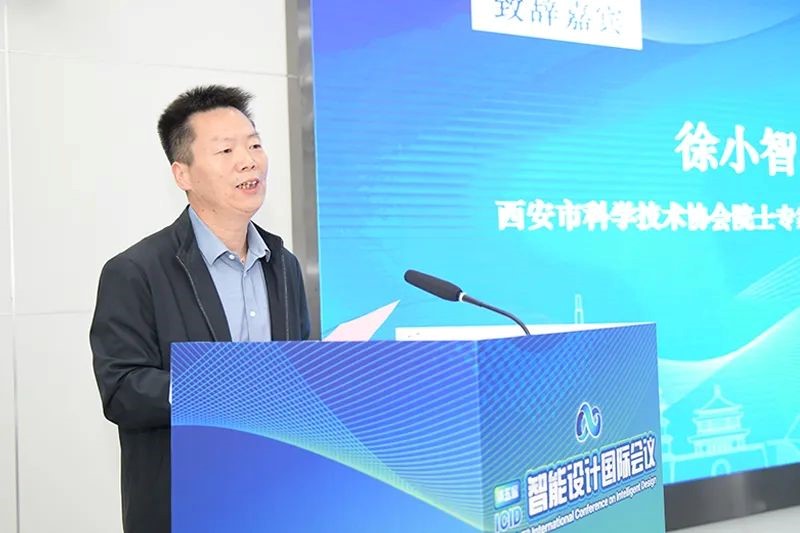
Xiaozhi Xu, Director of the Academician and Expert Service Center at the Xi’an Association for Science and Technology (XAST), delivered a speech at ICID 2024
(西安市科学技术协会院士专家服务中心主任徐小智为大会致词)
Xiaoling Chen, Director of the Science and Technology Bureau in Beilin District, Xi’an, delivered a speech on behalf of the organizers. Chen underscored that Beilin District has capitalized on the construction of the Qin Chuangyuan Innovation-driven Platform in Shaanxi Province. The district has rigorously implemented an innovation-driven development strategy, adhering to scientific and technological innovation as the cornerstone and industrial upgrading as the ultimate objective. Among the “Six Beilins,” “Science and Innovation Beilin” has been prioritized, leading to accelerated development of the innovation system and the promotion of the commercialization of scientific and technological advancements. Consequently, the district’s scientific and technological capabilities have witnessed progressive enhancement, culminating in incremental augmentation of innovative capacity.
From the inaugural International Conference on Intelligent Design in 2020 (ICID 2020) to the fifth edition this year, each conference has garnered the participation of numerous esteemed scholars and industry leaders from both domestic and international realms, yielding a plethora of innovative and forward-thinking research outputs. These accomplishments have not only enriched the theoretical landscape of the intelligent design field but have also provided robust technical support and intellectual backing for fostering the development of related industries. It is anticipated that all experts, scholars, and industry peers will seize the invaluable opportunities presented by this conference to engage in deep exchanges and extensive collaborations, jointly exploring new technologies and applications within the intelligent design domain and collectively driving new advancements and paradigms for the intelligent design industry.
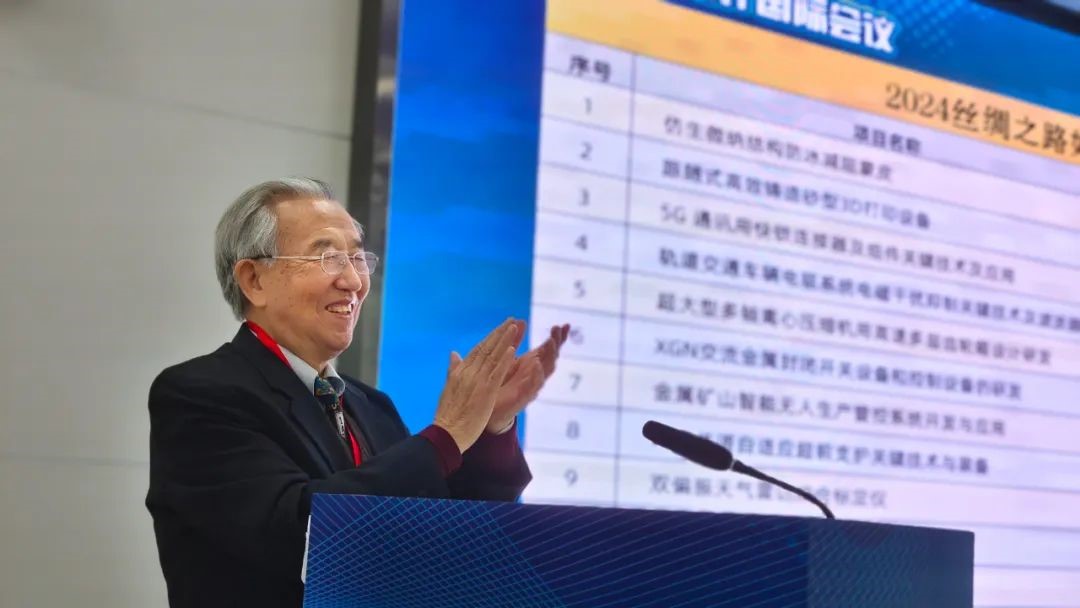
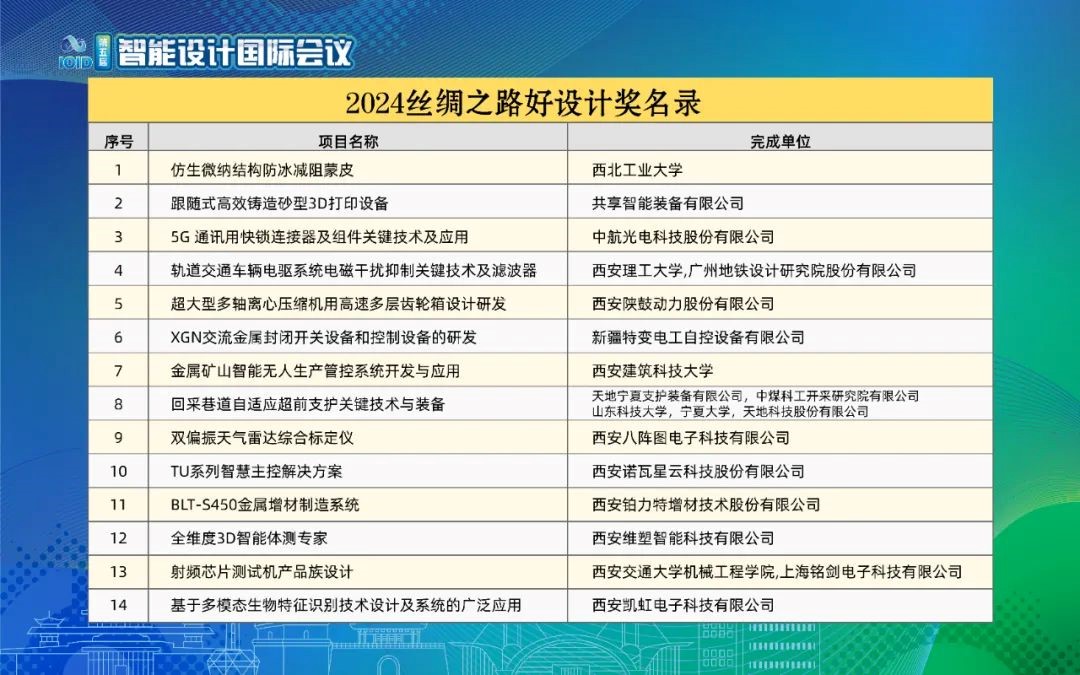
Professor Changde Lu announced the recipients of the “2024 Silk Road Design Award”projects
(陆长德教授宣读荣获“2024丝绸之路好设计"项目名单)
Over 130 representatives from universities, enterprises, and design research institutes worldwide attended the conference, including representatives from the University of the Arts London, the Royal College of Art (UK), Pusan National University (South Korea), Zhejiang University, Hunan University, Shanghai Jiao Tong University, Southern University of Science and Technology, Beijing Institute of Technology, Nanjing University of Information Science and Technology, Northwestern Polytechnical University, Northwest University, Henan University of Science and Technology, Harbin Institute of Technology, Shaanxi University of Science and Technology, Zhejiang University of Technology, East China University of Science and Technology, Taiyuan University of Technology, Jingdezhen Ceramic Institute, Xi’an University of Technology, Xi’an Polytechnic University, Xi’an Academy of Fine Arts, Xi’an University of Architecture and Technology, Xi’an Peihua University, Kunming University, Taiyuan University, Ningbo Tech University (affiliated with Zhejiang University), Chengdu Technological University, Guizhou Institute of Technology, Guangzhou City Construction College, National Institute Corporation of Additive Manufacturing, Xi’an, China Academy of Engineering Physics’ Overall Engineering Research Institute, Aerospace IoT Technology Co., Ltd., Jinan Engineering Polytechnic, Shaanxi Province Technology Transfer Center, and Origin Design Center.
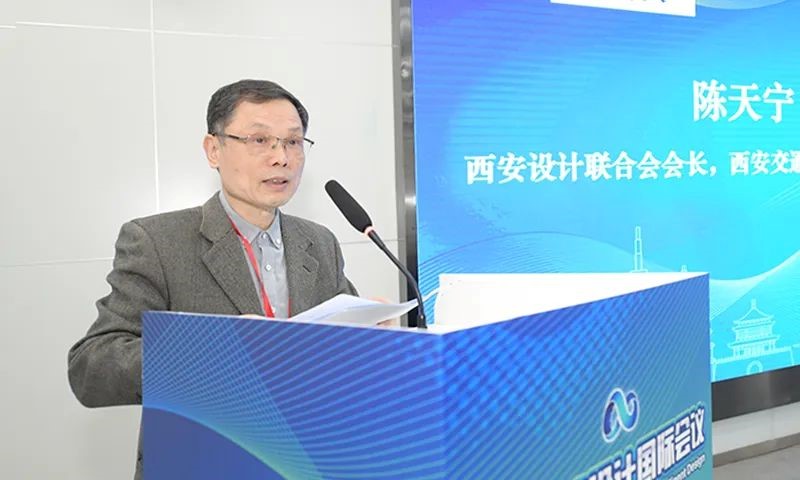
The morning session of the ICID 2024 was chaired by Tianning Chen, President of the Xi’an Design Union and a professor at Xi’an Jiaotong University
(上午会议由西安设计联合会会长、西安交通大学教授陈天宁主持)
This conference featured invited experts, scholars, and engineers in design fields from the University of the Arts London, Zhejiang University, Hunan University, Northwestern Polytechnical University, Northwest University, Southern University of Science and Technology, Nanjing University of Information Science and Technology, Xi’an Academy of Fine Arts, and other domestic and international institutions, who shared their latest research findings and practical experiences in the realms of innovative design and artificial intelligence.
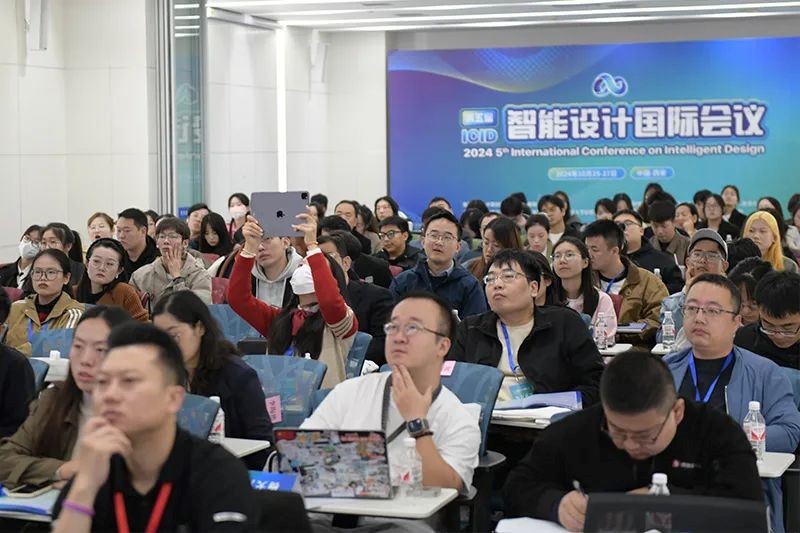
ICID 2024 was dedicated to enhancing Xi’an’s modern infrastructural service systems, fostering advancements in smart healthcare and elderly care, intelligent machinery and manufacturing, and digital cultural heritage preservation. Seven keynote speeches revolved around pivotal topics, including “New Design Landscape Reshaped by Artificial Intelligence,” “The Evolution of Industrial Design and Design Education in the AI Era,” “Achieving Sustainable Development in Design Education and Disciplines,” “Innovative Medical Technologies Aided by Advanced Computational Tools,” “The Synergistic Relationship Between Digital Art and Traditional Culture,” “Interdepartmental Collaboration Facilitated by Sophisticated Computational Models,” “Industry-Education Integration Strategies through Multi-Disciplinary Collaboration,” and “Innovative Practices in Design Methodologies.” These presentations introduced attendees to groundbreaking research and development, theoretical exploration, and application promotion within the realm of intelligent design, offering insights and practical strategies for ensuring the sustainability of intelligent design in terms of operability and feasibility.
The conference underscored not only the economic sustainability role of artificial intelligence but also struck a balance by considering its social and environmental sustainability. It provided a clear and intuitive grasp of the healthy and orderly progression of generative artificial intelligence and presented research cases with profound guidance and practical implications for bolstering capabilities in key areas such as computing power, data, and algorithms.
Keynote Speeches by Domestic Presenters
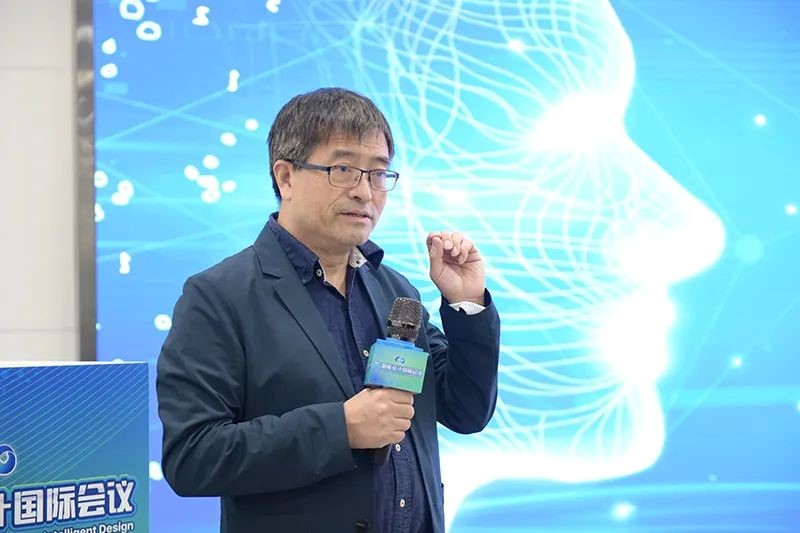
Professor Shouqian Sun, who holds the positions of Professor and PhD Supervisor at Zhejiang University, Director of the Future Design Lab, Chairman of the Academic Degree Committee for Design Studies, Vice Chairman and Secretary-General of the China Innovative Design Industry Strategic Alliance, Member of the Design Studies Evaluation Committee of the Academic Degrees Committee of the State Council, as well as Executive Council Member of the Chinese Mechanical Engineering Society and Executive Vice Chairman of its Industrial Design Branch, delivered a keynote address entitledAIGC: Reshaping the New Dimensions of Design. (浙江大学教授、博导,未来设计实验室主任设计学学科学位委员会主任,中国创新设计产业战略联盟副理事长兼秘书长,国务院学位委员会设计学学科评议组成员,中国机械工程学会常务理事兼工业设计分会常务副主任孙守迁为大会致词并做题为《AIGC重塑设计新维度》的报告。)
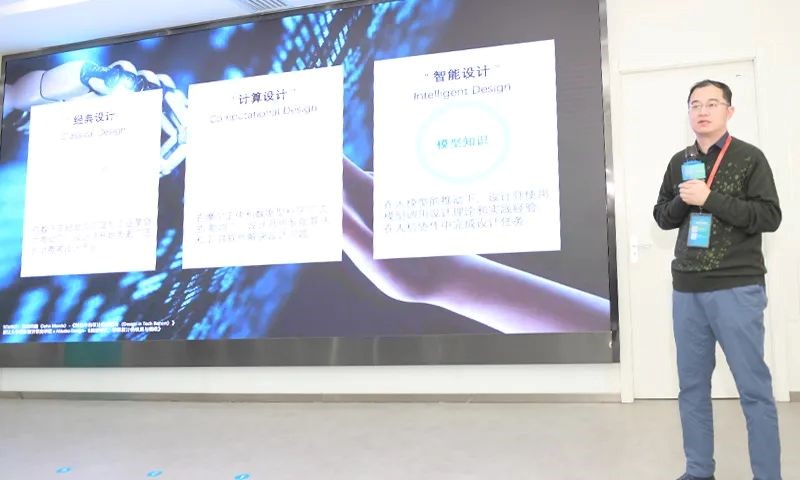
Professor Wei Wang, Vice Dean of the School of Design and Art at Hunan University, serving as a Professor and PhD Supervisor, presented a report titledIndustrial Design and Design Education in the Age of Intelligence. (湖南大学设计艺术学院副院长,教授、博导王巍做题为《智能时代的工业设计与设计教育》的报告。)
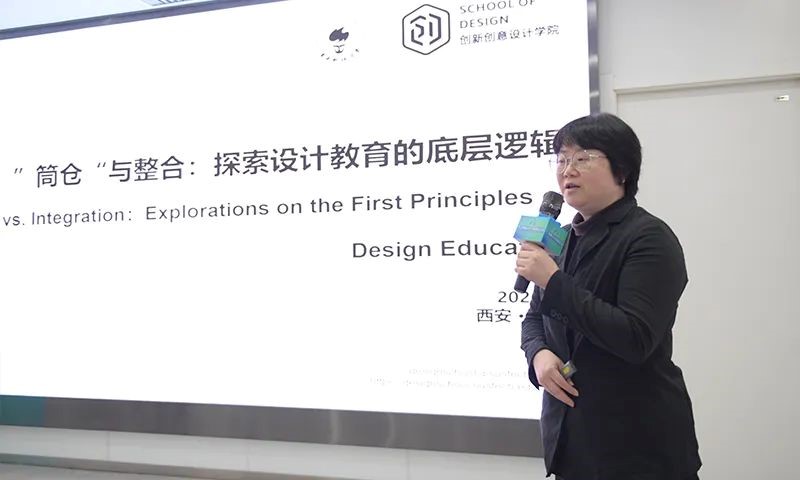
Professor Xu Li, Executive Vice Dean of the School of Innovative and Creative Design at Southern University of Science and Technology, gave a keynote speech with the title Silos vs. Integration: Exploration on the First Principles of Design Education. (南方科技大学创新创意设计学院行政副院长李旭做题为《“筒仓”与整合:探索设计教育的底层逻辑》的报告。)
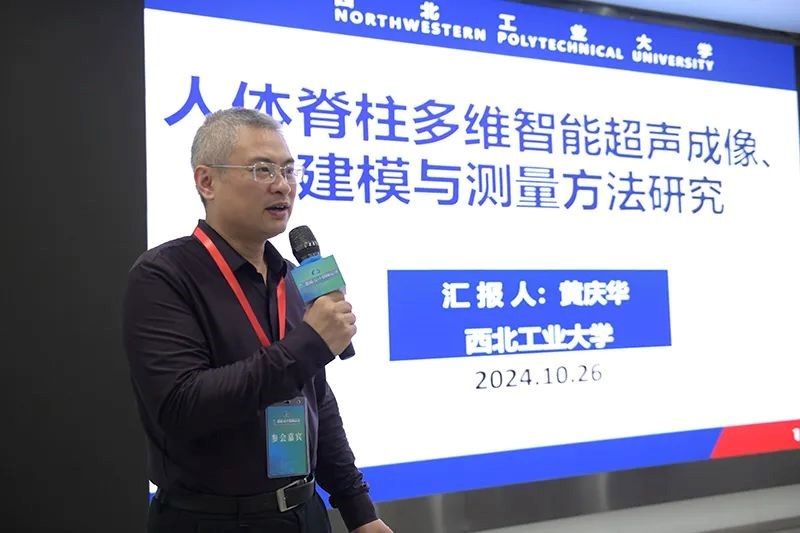
Professor Qinghua Huang, who is both a Professor and PhD Supervisor at the Institute of Optoelectronics and Intelligence at Northwestern Polytechnical University and a national-level high-level talent, presented a report titledResearch on Multi-Dimensional Intelligent Ultrasound Imaging, Modeling, and Measurement Techniques for the Human Spine. (西北工业大学光电与智能研究院教授、博导,国家级高层次人才黄庆华做题为《人体脊柱多维度智能超声成像、建模与测量方法研究》的报告。)
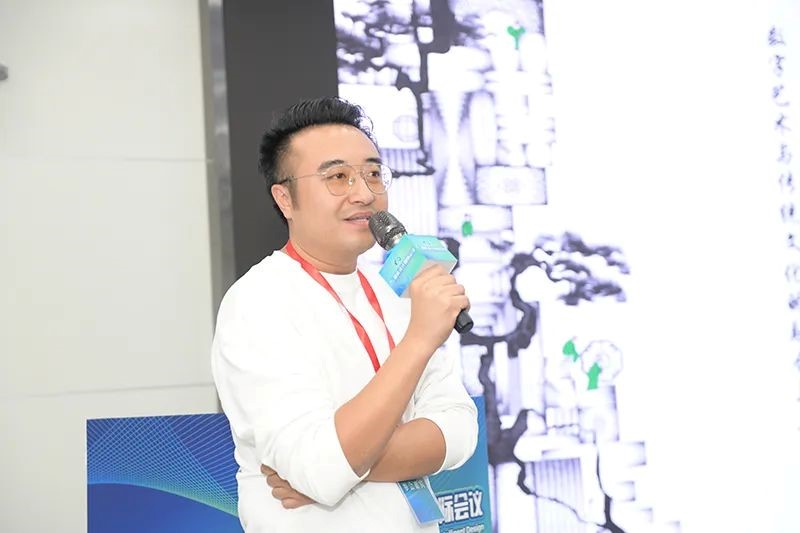
Associate Professor Chen Luo, from the School of Design and Art at Xi’an Academy of Fine Arts, delivered a keynote address titledThe Fusion and Coexistence of Traditional Culture and Digital Art. (西安美术学院设计艺术学院副教授罗琛做题为《传统文化与数字艺术的融合与共生》的报告。)
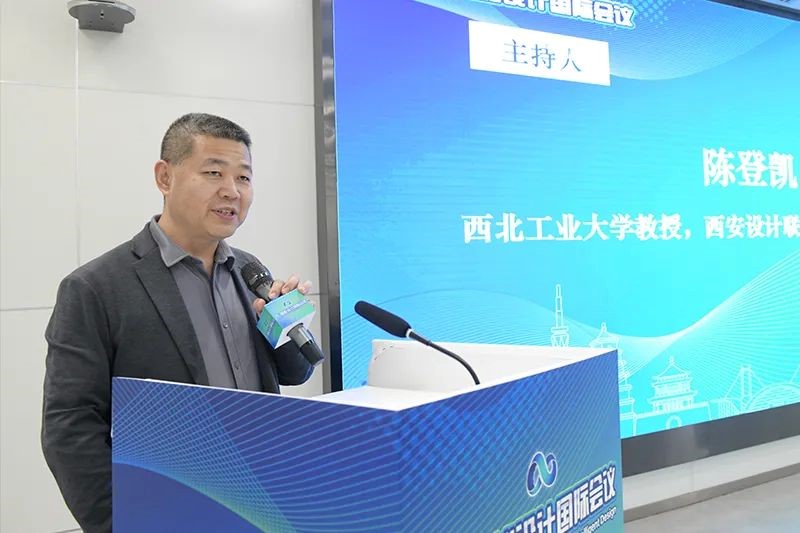
The afternoon session was chaired by Professor Dengkai Chen, who serves as Secretary-General of the Xi’an Design Union and is also a Professor and PhD Supervisor at Northwestern Polytechnical University.
(下午会议由西安设计联合会秘书长,西北工业大学教授、博导陈登凯主持)
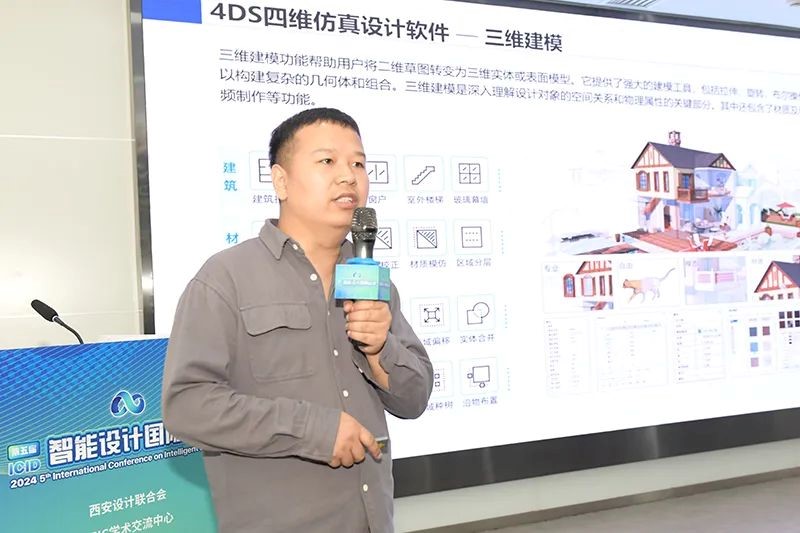
Senior Engineer Shuayi Han, affiliated with Zhongzhi Software Co., Ltd., presented a report titled Intelligent Design Aided by Virtual Simulation. (众智软件股份有限公司高级工程师韩帅义做题为《虚拟仿真助力智能设计》的报告。)

Professor Zijian Wang, who holds the positions of Director of the International Cooperation Department at the Xi’an Design Federation, Representative of the Ramus Foundation in China, Secretary-General of the Creative China Design Alliance’s Shaanxi Branch, and Deputy Secretary-General of the Shaanxi Industrial Design Association, gave a keynote speech titledExploration and Practice of ‘Multi-disciplinary Collaboration’ in Industry-Education Integration Projects: Insights from Design Studies Majors. (西安设计联合会国际合作部主任、德国拉姆斯基金会驻华代表、创意中国设计联盟陕西处秘书长、陕西省工业设计协会副秘书长王子健做题为《高校“多跨协同”产教融合项目的探索与实践——以设计学类专业为例》的报告。)
Keynote Speeches by International Presenters 国际嘉宾主旨报告
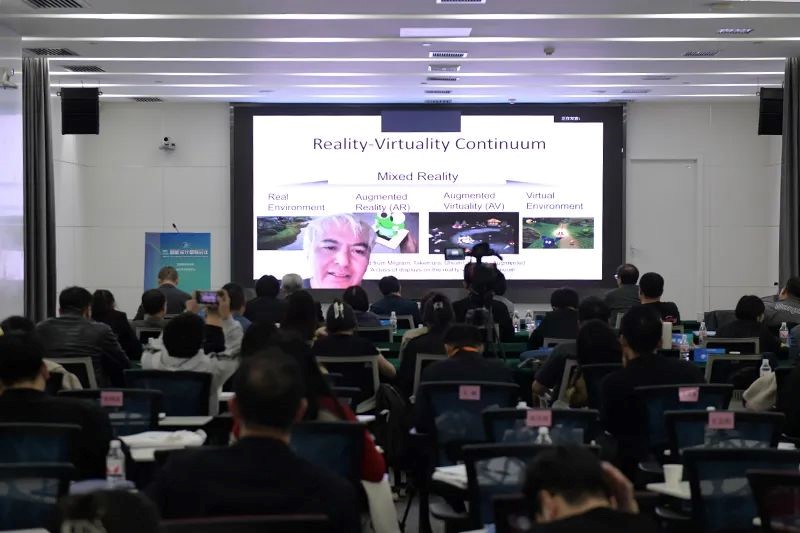
1. Professor Adrian David Cheok, a professor at Nanjing University of Information Science and Technology and the Director of the Imagine Institute in Malaysia, presented a lecture titledEverysense Everywhere: Human Communication.(南京工程信息大学教授,马来西亚想象研究所所长阿德里安·大卫·肖克( Adrian David Cheok )教授做题为《Everysense Everywhere Human Communication》的报告。)
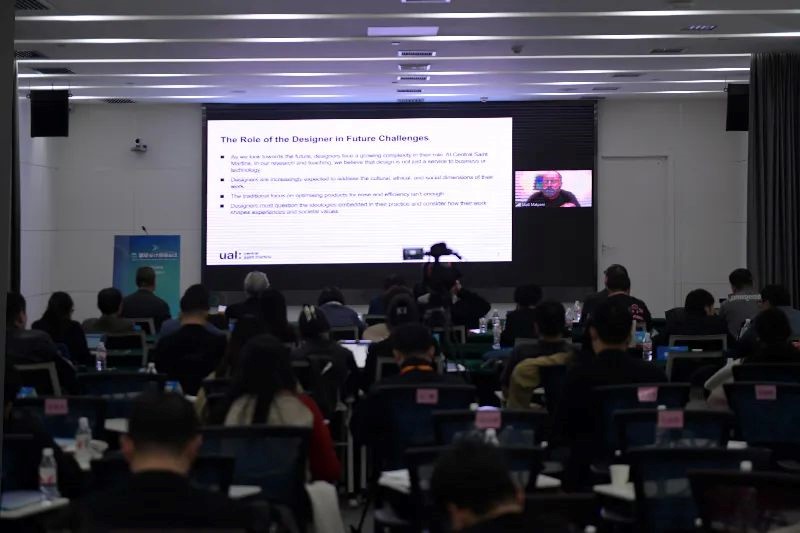
Matt Malpass, who serves as a lecturer in Critical Design Practices at the University of the Arts London, a professor of Critical Design Practices at Central Saint Martins, and a theorist, delivered a presentation titledHow Design Matters: Beyond Aesthetics and Function.(伦敦艺术大学批判性设计实践的讲师,中央圣马丁大学的批判性设计实践教授、理论家马特-马尔帕斯(Matt Malpass)做题为《How Design Matters: Beyond Aesthetics and Function》的报告。)
Academic Exchange 科研交流
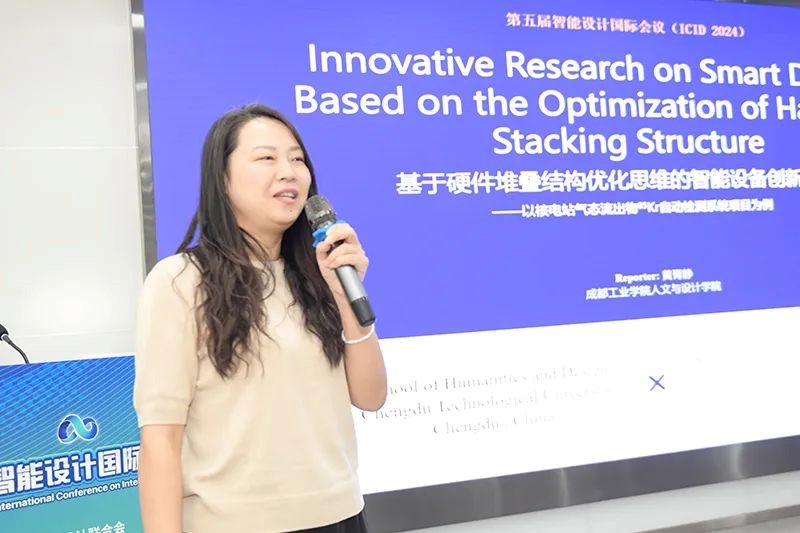
Xujing Huang, a senior engineer from Chengdu Technological University, presented a report titledInnovative Research on Smart Devices Based on the Optimization of Hardware Stacking Structure.(成都工业学院高级工程师黄胥静,分享题为《基于硬件堆叠结构优化的智能设备创新研究》的报告。)
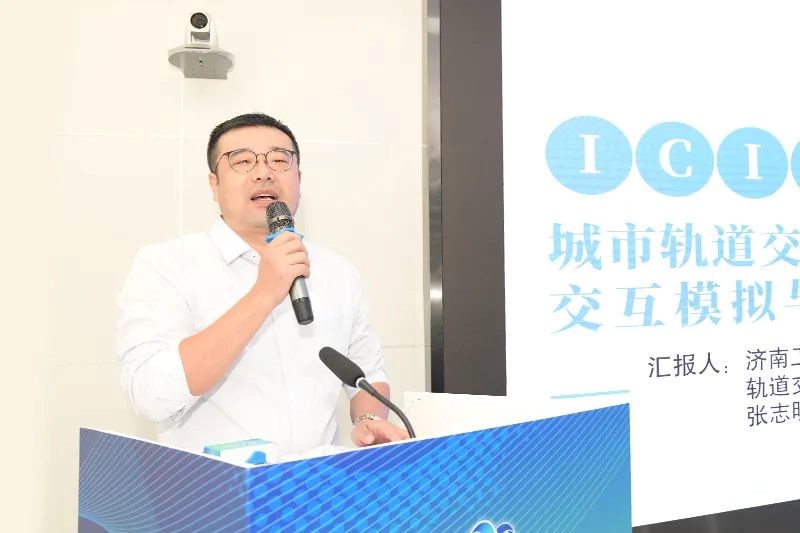
Zhiming Zhang, a professor from Jinan Engineering Polytechnical, shared a report titled Simulation and Application Analysis of Human-Computer Interaction in Urban Rail Transit Environments. (济南工程职业技术学院教授张志明,分享题为《城市轨道交通环境人机交互模拟与应用分析》的报告。)
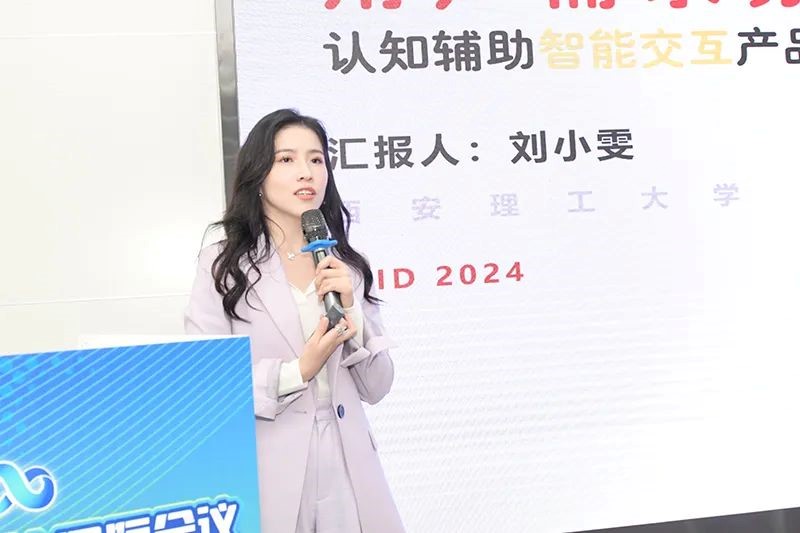
Xiaowen Liu, an associate professor from Xi’an University of Technology, presented a report titledResearch on Cognitive-Assisted Smart Interactive Product Design Based on User Needs Analysis for Children with Autism Spectrum Disorder (ASD). (西安理工大学副教授刘小雯分享题为《基于ASD儿童用户需求分析的认知辅助智能交互产品设计研究》的报告。)

Zhenzhen Shang, an associate professor from Taiyuan University, shared a report titledDesign and Performance Analysis of MEMS Vector Hydrophone Micro-Array Structures. (太原学院副教授尚珍珍,分享题为《MEMS矢量水听器微阵结构设计与性能分析》的报告。)
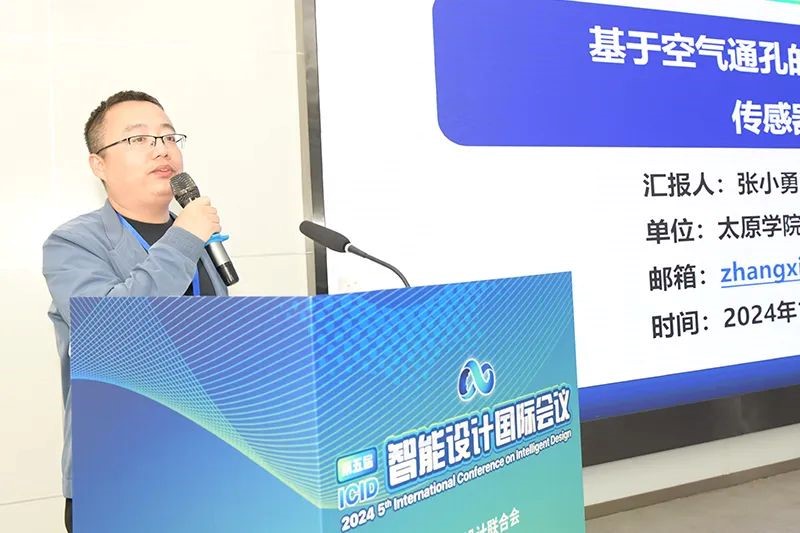
Xiaoyong Zhang, an associate professor from Taiyuan University, presented a report titledDesign of a Wireless and Passive Humidity Sensor Based on Pore Structure. (太原学院副教授张小勇,分享题为《基于气孔结构的无线无源湿度传感器设计》的报告。)
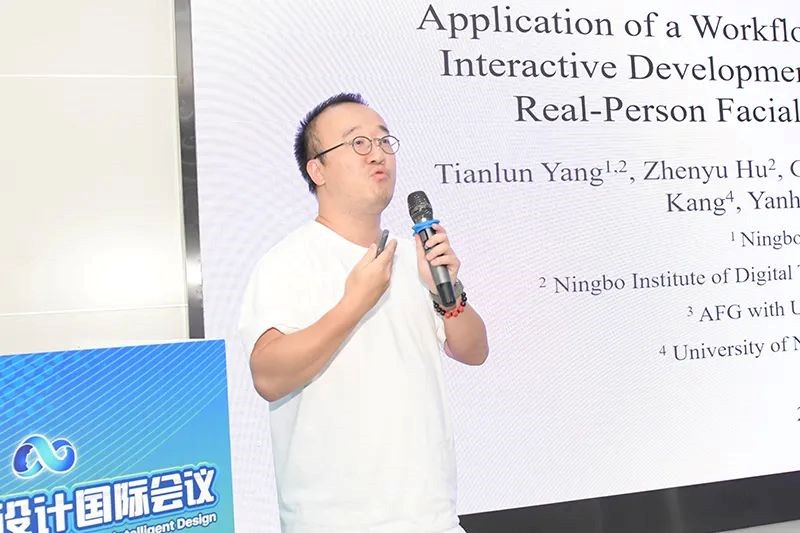
Tianlun Yang, a lecturer from Ningbo Institute of Technology (affiliated with Zhejiang University), shared a report titledApplication of a Workflow on Digital Human Creation and Interactive Development Based on Real-Person Facial Photos. (浙大宁波理工学院讲师杨天伦,分享题为《基于用户真人脸部照片的数字人构建与交互开发工作流应用研究》的报告。)
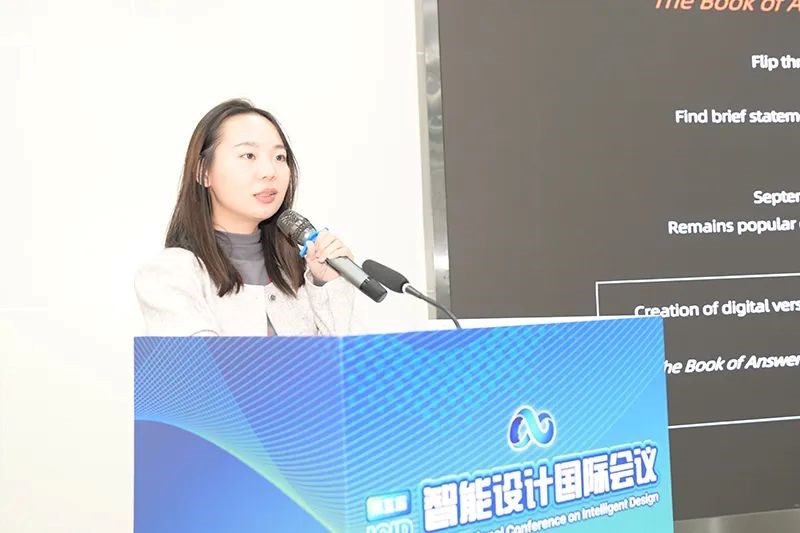
Dr. Yueying Wu and Professor Changgen Li from Pusan National University in South Korea presented a report titledAn Empirical Study on Digital Cover Design Based on the AIDA Model: Focusing on The Book of Answers.(韩国釜山大学吴玥盈博士、李昌根教授,分享题为《基于AIDA模型的数字封面设计实证研究:以<答案之书>为中心》的报告。)

Lingxi Liu from the Harbin Institute of Technology presented a report titled Interface Design and Interaction Optimization for Diet Management of Alzheimer’s Patients Based on the Fogg Behavior Model. (哈尔滨工业大学刘凌汐,分享题为《基于福格行为模型的阿尔茨海默病患者饮食管理界面设计与交互优化》的报告。)
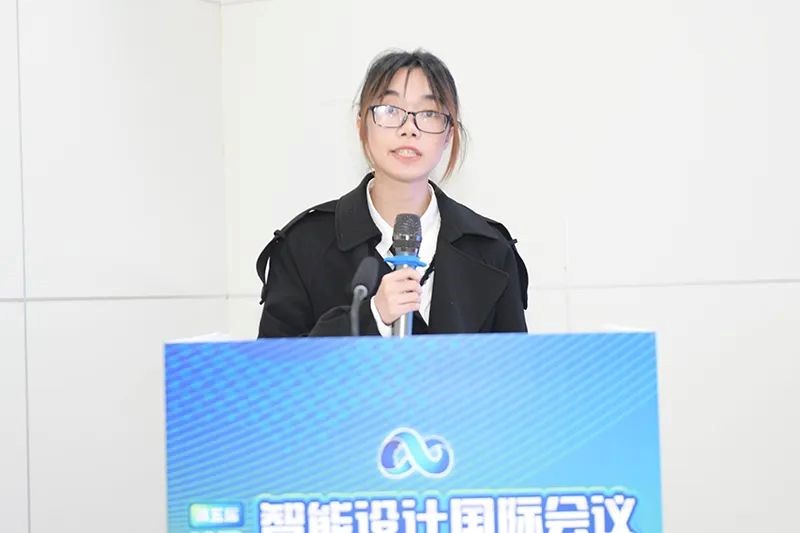
Quan Wang from Zhejiang University of Technology shared a report titledAnalysis of Green Smart Community Building Models Based on Carbon Emission and Comfort Simulation—A Case Study of the ‘Courtyard-Style’ Community Form. (浙江工业大学王荃,分享题为《基于碳排放和舒适度模拟的绿色智能社区建筑模型分析--以“庭院式”社区形态为例》的报告。)
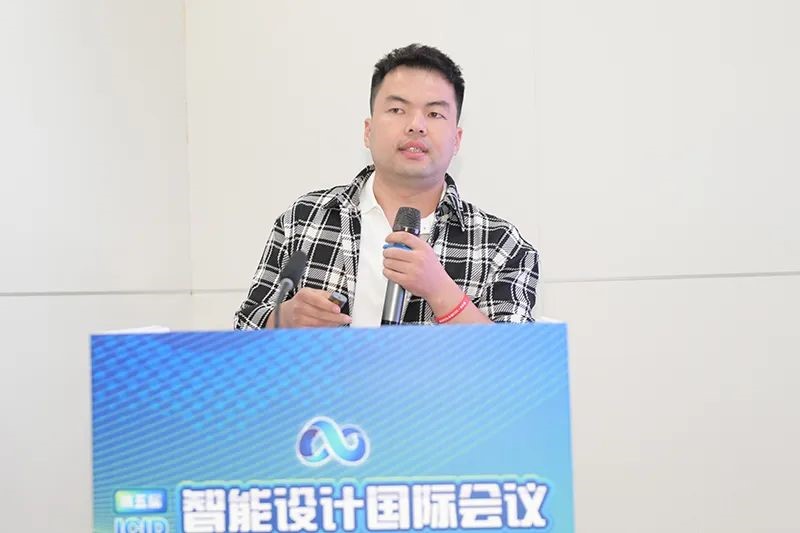
Xiaofeng Li from Xi’an Polytechnic University presented a report titledResearch on the Design of Elderly Rehabilitation Exercise Bicycles Based on User Behavior. (西安工程大学李小峰,分享题为《基于用户行为的老年康复训练脚踏车设计研究》的报告。)
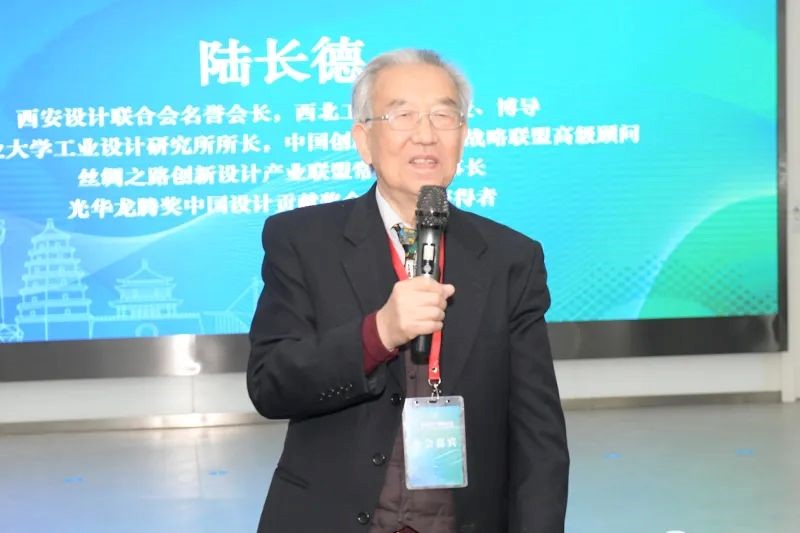
Closing Ceremony Chaired by Professor Changde Lu
(陆长德教授为大会总结闭幕)
Professor Changde Lu remarked that the ICID 2024 emerged as a professional, open, and high-caliber exchange platform for scholars and practitioners within the realm of intelligent design. It enhanced research methodologies, explored practical applications, exchanged accomplishments, and refined academic endeavors, thereby bridging the gap in technological innovation, stimulating the creative energy of universities and research institutions, advancing the innovation and implementation of intelligent design technologies, and nurturing the growth of the intelligent design industry. The conference played a pivotal role in establishing Xi’an as a new growth hub for artificial intelligence, integrating AI across various sectors of Xi’an’s economic and social development. It capitalized on Xi’an’s strengths in AI disciplines and education, actively fostering the deep integration of AI with innovative design. Moreover, it exemplified proactive strategies for Xi’an’s sustainable development in the intelligent era, contributing to Xi’an’s efforts in achieving China’s high-level scientific and technological self-reliance and innovation-driven high-quality development.
Through this conference, the Xi’an Design Union embraced the national innovation-driven development strategy, actively underpinning the construction of the Qin Chuangyuan Innovation-driven Platform and fostering high-quality and innovative regional economic development. Leveraging Xi’an’s position as a prominent science and education hub, it remained committed to serving the innovative design industry and cultivating creative talent. By building a nexus for technology, talent, industry, services, and innovation, this union ignited the creative spark within researchers at universities and research institutions. It actively abided by Xi’an’s “dual-center” development, contributing to Xi’an’s efforts in achieving China’s high-level scientific and technological self-reliance and innovation-driven high-quality development. Furthermore, it assisted in the development of Xi’an as a “City of Design,” promoting high-quality economic growth within the city.
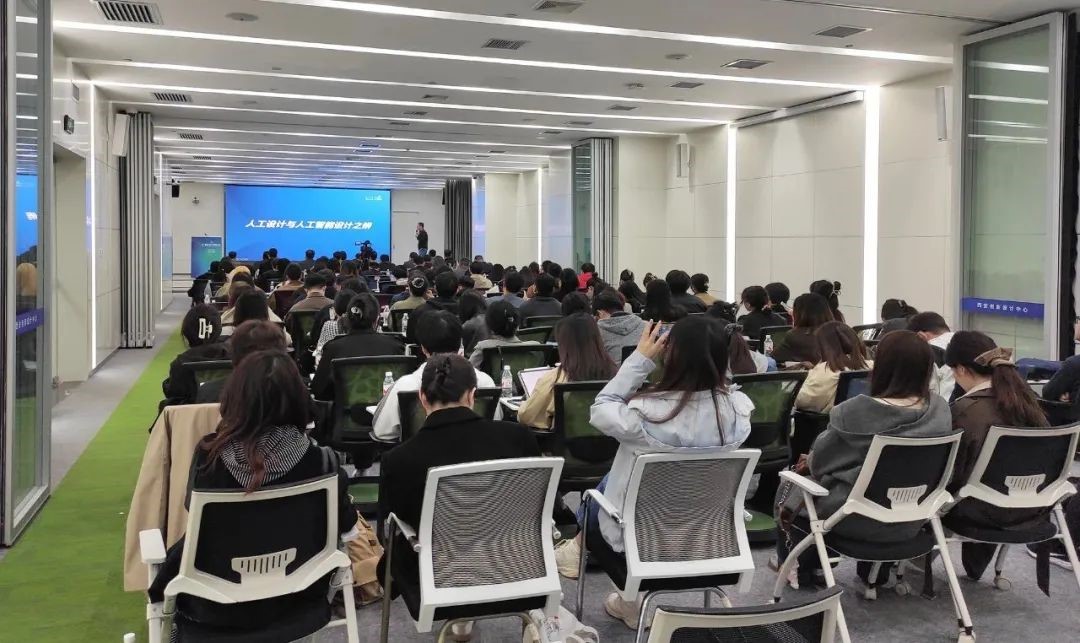
10月26日,第五届智能设计国际会议(2024 5th International Conference on Intelligent Design, ICID 2024)在西安创新设计中心圆满召开。本次会议由丝绸之路创新设计产业联盟、西安市碑林环大学创新产业带管委会、西安市碑林区科技和工业信息化局、西安设计联合会主办,西安设计联合会及学术交流中心承办。
大会邀请国内外智能设计领域的专家、学者、研究人员及相关从业人员参会交流,旨在促进智能设计领域的交流与合作,探讨智能设计在各个领域的应用和发展趋势,加速设计行业的创新、活力、联动与增长,推动智能设计向数字化、网络化、智能化、绿色化发展,为全球智能产业新格局贡献力量!
西安市碑林区科技和工业信息化局局长陈晓玲代表主办方为大会致词,陈局长表示,碑林区抢抓陕西建设秦创原创新驱动平台机遇,深入实施创新驱动发展战略,坚持坚持以科技创新为引领,以产业升级为目标,将“科创碑林”作为“六个碑林”之首重点推进,加快创新体系建设,促进科技成果转化,全区科技实力不断提高,创新能力逐步加强。
从2020年首届智能设计国际会议的成功举办,到今年的第五届盛会,每一届会议都吸引了众多国内外知名学者和业界精英参与,产生了大量具有创新性和前瞻性的科研成果。这些成果不仅丰富了智能设计领域的理论体系,更为推动相关产业发展提供了有力的技术支撑和智力支持。希望各位专家学者和业界同仁能够充分利用本次会议提供的宝贵机会,深入交流、广泛合作,共同探索智能设计领域的新技术和新应用,共同推动智能设计产业的新发展和新模式。
伦敦艺术大学、英国皇家艺术学院、韩国釜山大学、浙江大学、湖南大学、上海交通大学、南方科技大学、北京理工大学、南京工程信息大学、西北工业大学、西北大学、河南科技大学、北京理工大学、哈尔滨工业大学、陕西科技大学、浙江工业大学、华东理工大学、太原理工大学、景德镇陶瓷大学、西安理工大学、西安工程大学、西安美术学院、西安建筑科技大学、西安培华学院、昆明学院、太原学院、浙大宁波理工学院、成都工业学院、贵州理工学院、广州城建职业学院、西安增材制造国家研究院有限公司、中国工程物理研究院总体工程研究所、航天物联网技术有限公司、济南工程职业技术学院、陕西省高校技术转移中心、原点设计中心等国内外高校、企业、设计研究院所代表130余人参加了本次会议。
本次会议特邀伦敦艺术大学、浙江大学、湖南大学、西北工业大学、西北大学、南方科技大学、南京信息工程大学、西安美术学院以及来自国内外设计领域的专家、学者和工程师分享他们在创新设计领域与人工智能领域的最新研究成果和实践经验。
本届会议议题赋能西安市现代社会的基础服务体系,助力智慧医疗和养老、智能机械与生产制造、数字文化遗产保护等方面的建设。其中7个主旨报告分别围绕“人工智能重塑设计新维度”、“人工智能时代背景下的工业设计变革与设计教育思考”、“设计教育及学科的实现与可持续发展”、“高级计算工具辅助新型医疗科技”、“数字艺术与传统文化的共生关系”、“高级计算模型助力多部门协作”、“‘多跨协同’产教融合的实践方法”、“创新设计实践方法”等话题为参会者介绍了智能设计的前沿技术研发、理论探索以及应用推广,提出了智能设计在可操作性与可实现性方面关于可持续发展的思考与实践方法。
会议不仅强调了人工智能保证经济的可持续性;而且均衡考量其社会与环境的可持续性;对生成式人工智能的健康有序发展,有了鲜明而直观的认识与理解;对算力、数据、算法等关键组件的能力建设,提出了具有较强指导意义和实践意义的研究案例。
在大会总结闭幕中,陆长德教授讲到,第五届智能设计国际会议为智能设计领域的学者和从业人员在研究方法,探讨实践,交流成果,精进学术等方面搭建了一个专业、开放、高品质的交流平台,链接科技创新的路径,激发高校院所创新活力,推动智能设计技术的创新和应用,促进智能设计产业的发展。会议助力西安打造人工智能新增长引擎,将人工智能融入西安经济社会发展各领域;充分发挥西安市人工智能学科与教育优势,积极推动人工智能与创新设计的深度融合;为科创西安在智能时代的可持续发展方面做出积极实践,为实现我国高水平科技自立自强和创新驱动高质量发展贡献西安力量!
通过本次会议,西安设计联合会贯彻落实国家创新驱动发展战略,积极服务秦创原创新驱动平台建设,助力区域经济高质量创新发展;发挥西安科教重镇优势,坚持服务创新设计产业,培养创新人才;链接科技、人才、产业、服务与创新的路径,激发高校院所科研人员创新活力;积极支撑西安“双中心”建设,为实现我国高水平科技自立自强和创新驱动高质量发展贡献西安力量;助力西安“设计之都”建设,推动城市经济高质量发展。
